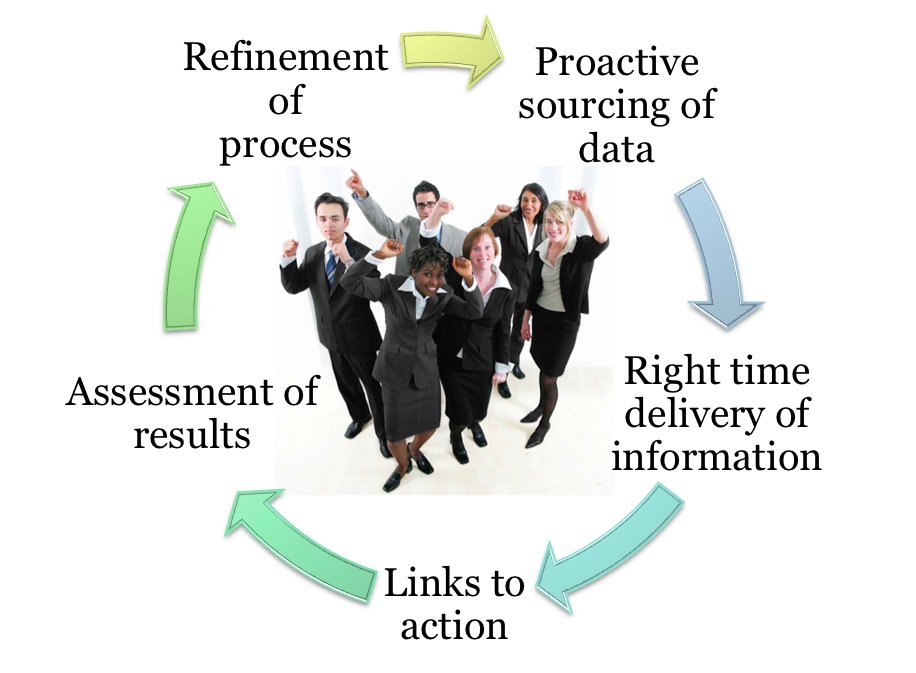Monday's Musings: Why Every Social CRM Initiative Needs An MDM Backbone

Proliferation and access to new social tools creates significant challenges for organizations
Organizations engaged in Social CRM initiatives often start out by monitoring the chatter and conversation across a few platforms and channels such as Facebook and Twitter. As these organizations increase their savviness, they quickly realize the enormity of the challenge. The exponential number of touch points and algorithmic channel complexity puts to shame yesterday's eCommerce strategy and the dated tools designed to address multi-channel. In order to cut through the high noise to signal ratio, organizations must determine how best to manage the complexity and scale of data being generated, amidst a transforming landscape where:
- CIO's no longer determine technology adoption - business leaders and individuals initiate a groundswell.
- Consumer technologies provide more innovation, usability, and reliability than what's available to the enterprise.
- Disparate systems results in fragmentation of key information despite new deployment options.
Basic business questions must be addressed in every Social CRM initiative
Despite the massive scale of collected, fragmented data, Social CRM initiatives complement other relationship management initiatives in asking and answering key questions such as:
- Do we know the identity of the individual?
- Can we tell if there are any apparent and potential relationships?
- Are they advocates or detractors? (added 8/31 07:25 am PT)
- How do we know whether or not we have a false positive?
- What products and services have been purchased in the past?
- Have we assessed how much credit risk we can be exposed to
- What pricing and entitlements are customers eligible for?
Organizations seek automation technologies to resolve master data issues.
Master data management (MDM) provides a set of technologies that address the acquisition, cleansing, enrichment, and distribution of data. With so many channels and so many sources, Social CRM initiatives require MDM technologies that (See Figure 1):
- Resolve matching of a broad range of data types. Organizations will want to associate individuals to products, services, orders, contracts, incidents, location, etc.
- Deliver consistent and accurate enrichment of data. Organizations will want to append trusted data sources, hierarchies, and relationship information to cleansed information.
- Provide timely synchronization in federated environments. Organizations can expect their data to be federated as social media tools and SaaS deployments push data beyond centralized repositories.
Figure 1. Consistent Information In Social CRM Requires A MDM Backbone
[caption id="attachment_3029" align="alignnone" width="800" caption="Figure 1. Consistent Information In Social CRM Requires A MDM Backbone Copyright © 2009 R Wang. All rights reserved."]
[/caption]
Recommendations - apply continuous customer management (CCM) processes before implementing MDM technologies
Form follows function. MDM technologies should not be implemented without a clear understanding of how customer management and data governance processes will be adopted. Five hallmarks of CCM include (see Figure 2):
- Proactive sourcing of data. How can data be kept up to date at every touch point.
- Right time delivery of information. What should be delivered when, where, why, and to whom?
- Links to action. What can be done to create actionable insight?
- Assessment of results. What metrics help paint the overall picture?
- Refinement of process. What lessons learned can be applied to future initiatives?
Figure 2. Continuous Customer Management (CCM) delivers 5 unique stages
Your POV
Have you begun your Social CRM strategy without MDM? What MDM issues do you face? If you have put MDM to use in Social CRM, let us know any lessons learned. Post your comment here or reach me direct at r at altimetergroup dot com or r at softwareinsider dot org.
Copyright © 2009 R Wang. All rights reserved.
 R "Ray" Wang
R "Ray" Wang R "Ray" Wang
R "Ray" Wang